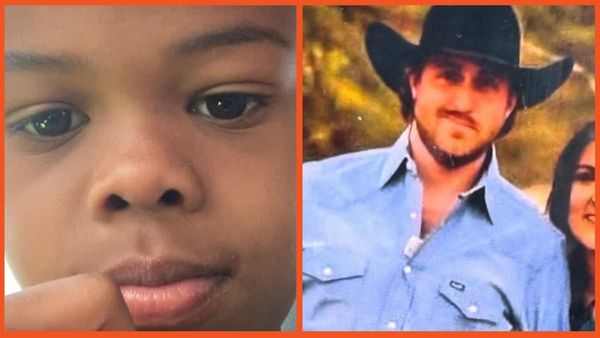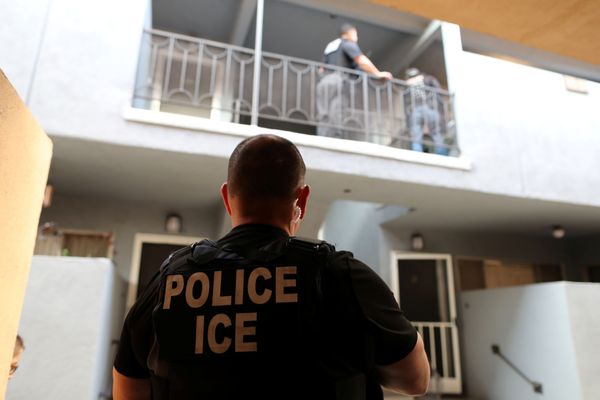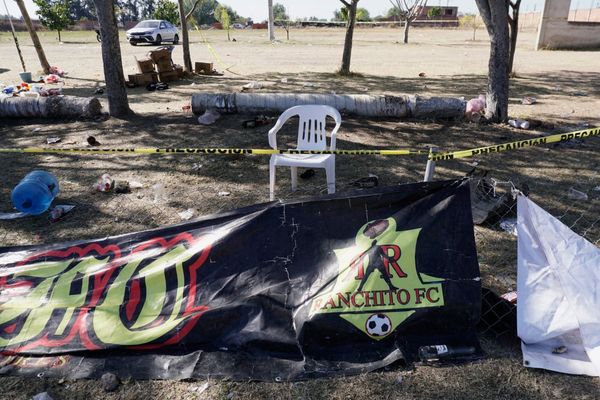Indigenous people from America and Australia have gathered in the Red Centre with the collective goal of saving their languages from extinction.
Native American language experts are sharing their secrets of success in a four-day conference attended by more than 100 people from communities across Australia.
From north-western California, Julian Lang witnessed firsthand the revival of his own native tongue — the Karuk language.
"One person teaches another person and that person becomes a seed for so many more," Mr Lang explained.
"We wanted to create five new speakers in five years, and three years later we have five new speakers."
No books needed to revive languages
Twelve Native American revivalists will be sharing the "master-apprentice program" their ancestors developed more than three decades ago.
The program does away with books, pen and paper, and doesn't rely on a curriculum.
Instead, they speak about everyday things, slowly acquiring words and context.
Julian Lang is one of the founders of the program and said it takes dedication and time — he estimates about three years and 900 hours.
Once an apprentice, now he is teaching Tori McConnell to reconnect more fully with her Karuk culture.
"They used to pick up young native kids and take them to the school and strip them of their culture and their language and their identity," the 22-year-old explained.
"We are reconnecting with who we are in those pieces that the schools and the churches kind of stripped away."
"We were told never to speak our language again"
This story of language extinction is universal.
Australian government policies actively sought to extinguish Indigenous languages up until the 1970s — like Pertame, also known as Southern Arrernte, spoken originally around the Finke River south of Alice Springs.
Pertame woman, Aunty Kathleen Bradshaw-Swan, recalled how they would yarn in secret when they were children.
"At school, we were told not to speak that lingo and we were told never to speak our language again," Aunty Kathleen said.
"My sister Christobel was saying, sometimes she got hit by the headmaster for speaking the language."
They are two of about 20 people who fluently speak Pertame.
The latest census found 167 Aboriginal and Torres Strait Islander languages are still spoken in homes across Australia.
But as many as 110 languages are severely or critically endangered.
"I am sad about our language being taken away in the past but with these people coming there are new beginnings for us," Aunty Kathleen Bradshaw-Swan told The Drum.
The immersion technique
The UN has declared this next 10 years as the International Decade of Indigenous Languages.
In 2019 Aunty Kathleen and her granddaughter travelled to New York to hear about techniques that could fast-track the learning process, and they liked what they heard about the Master-Apprentice Program.
This one-on-one, or breath-to-breath, immersion technique is being shared at community-led The Pertame School in Alice Springs.
Samantha Penangka Armstrong is helping to run the conference with The Batchelor Institute and is also one of the apprentices.
"It's reverting back to our old ways where we just only spoke language with our elders," she said.
"It could be asking about a certain plant, what it's used for, when it's in season, if animals eat it or if humans eat it, getting the kids up for school — it's learning Pertame [by speaking] Pertame."
Through this conference, it's hoped the next generation across Australia will benefit from the Native American experience.
"It's really important for them to learn and get their language back," Samanatha Penangka Armstrong told The Drum.
"It is not only just for their identity, but really ties into connection to country."
"You can't go onto country unless you actually speaking to country in your own language."







